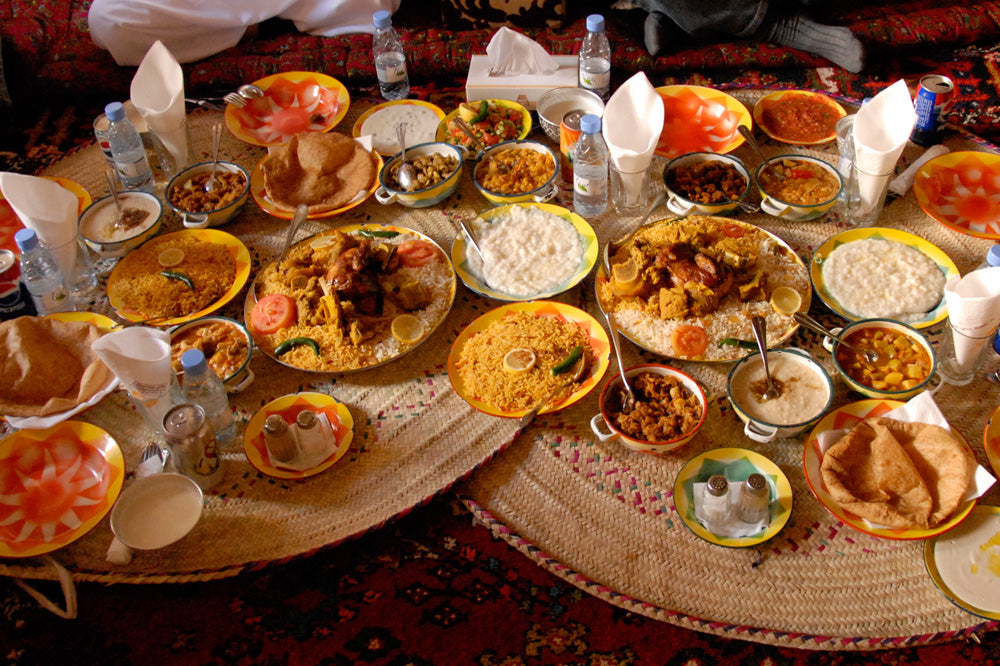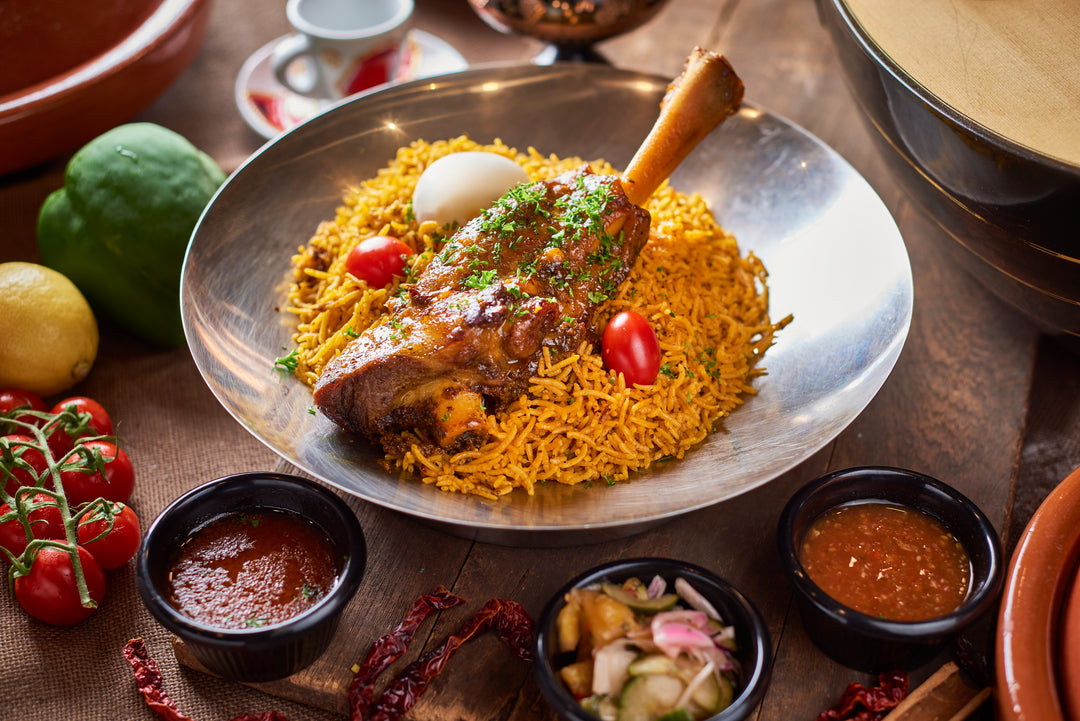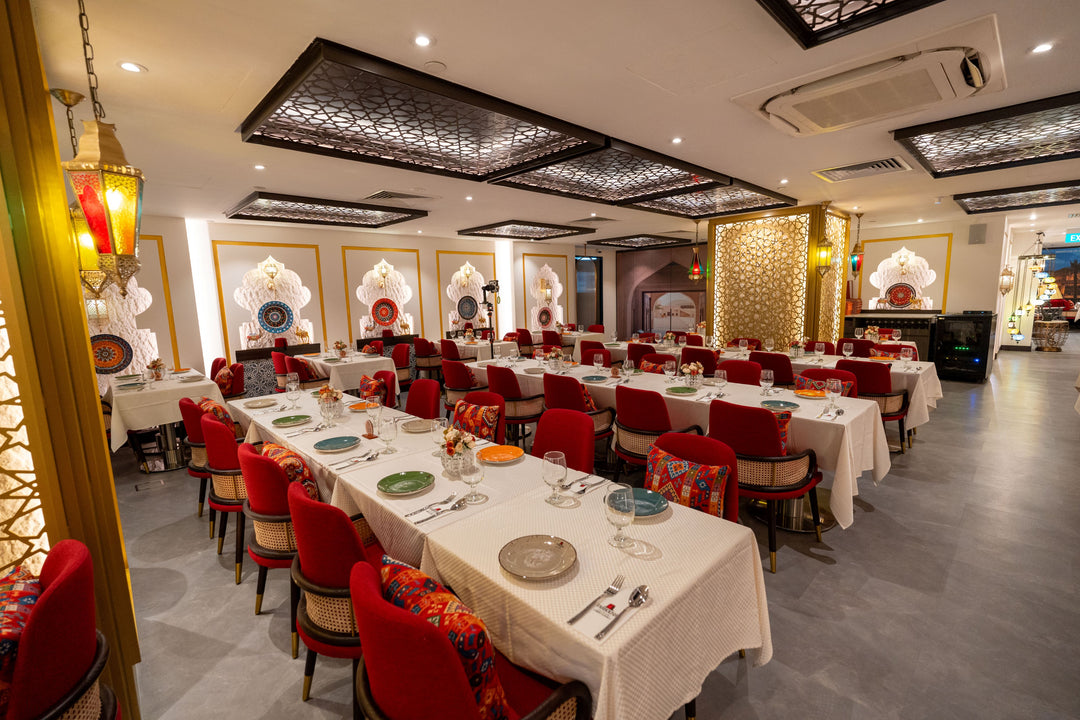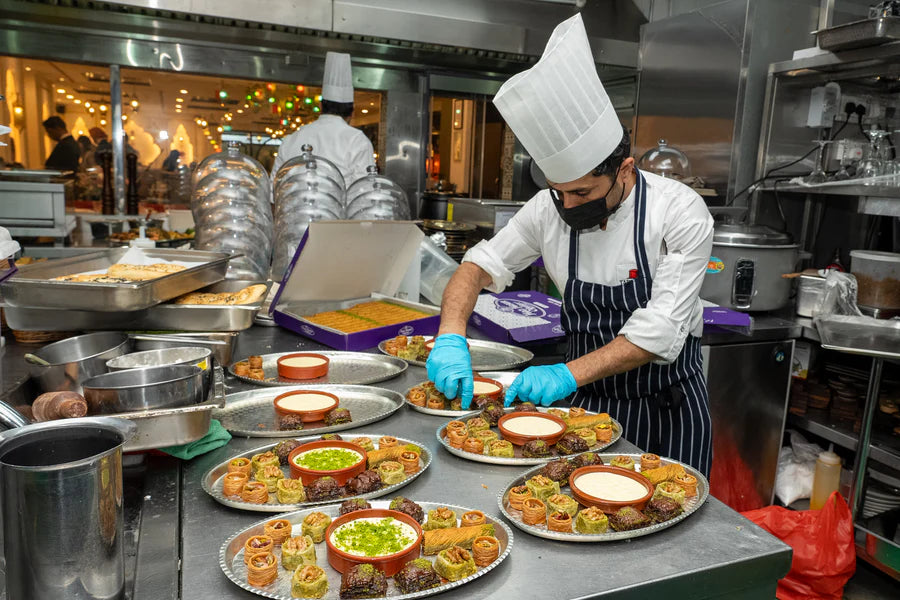The History of Arabic Cuisine: Influences and Flavors

Embark on a captivating journey through time and savor the rich tapestry of flavors that define Arabic cuisine. From the sun-drenched shores of the Mediterranean to the vast deserts of the Arabian Peninsula, Arabic cuisine boasts a vibrant heritage shaped by centuries of cultural exchange, trade, and diverse landscapes. In this exploration, we delve into the fascinating history of Arabic food, uncovering the influences and flavors that have made it a beloved culinary tradition across the globe.
Ancient Origins:
The story of Arabic cuisine begins in the cradle of civilization, Mesopotamia, where some of the earliest evidence of agriculture and food production can be found. Early Arabs were nomadic herders, relying heavily on dates, milk, and locally grown grains like barley and wheat. As they transitioned to a more settled way of life, their culinary practices evolved, incorporating techniques like fermentation for preserving food and baking flatbreads in rudimentary ovens.
The Spice Route and Beyond:
The strategic location of the Arab world at the crossroads of trade routes played a pivotal role in shaping its cuisine. The Silk Road, a network of trade routes stretching from China to the Mediterranean, brought a wave of exotic spices like cinnamon, cloves, cardamom, and saffron. These fragrant treasures not only added depth and complexity to Arabic dishes but also acted as natural preservatives, allowing food to be stored for longer periods.
Arab Conquests and Cultural Exchange:
The expansion of the Arab Empire from the 7th to 15th centuries further enriched Arabic cuisine. As Arab armies conquered new territories, they encountered diverse culinary traditions in Persia, North Africa, and the Mediterranean. This exchange of ideas and ingredients led to the incorporation of techniques like grilling meats on open flames Discover fire-kissed specialties with a local twist at Tarboush Restaurant, the use of nuts and dried fruits in sweet dishes, and the introduction of new vegetables like eggplants and artichokes.
Regional Delights:
Despite the unifying threads of spices and techniques, Arabic cuisine boasts a remarkable diversity across its vast regions.
- The Fertile Crescent: This region, encompassing Iraq, Syria, and Lebanon, is renowned for its fragrant stews and mezze platters featuring dips like hummus and baba ghanoush.
- The Arabian Peninsula: Lamb reigns supreme in dishes like kabsa, a fragrant rice dish with meat and spices, while flatbreads like pita bread are a staple.
- The Maghreb: North African countries like Morocco and Algeria are known for their tagines, slow-cooked stews infused with spices like turmeric and ginger, and couscous, a versatile semolina dish.
A Legacy of Spices:
Spices are the heart and soul of Arabic cuisine. Cumin, coriander, cinnamon, cardamom, and saffron are just a few of the treasures that add warmth, depth, and complexity to dishes. These spices are often used in blends like baharat, a versatile mix that adds a touch of smokiness and warmth, and za'atar, an earthy blend with a citrusy punch.
Beyond the Savory:
Arabic cuisine offers a delightful selection of sweet treats. Baklava, layers of filo pastry filled with nuts and drizzled with honey, is a classic favorite. Knafeh, a cheese pastry soaked in fragrant syrup, and lokma, bite-sized fried dough balls drizzled with syrup, are just a few examples of the decadent desserts that complete the Arabic culinary experience.
A Celebration of Hospitality:
Food in the Arab world is more than just sustenance – it's a cornerstone of social life and a symbol of hospitality. Sharing meals with family and friends is a cherished tradition, and meals often feature an abundance of dishes served family-style, encouraging conversation and connection.
A Legacy that Endures:
Today, Arabic cuisine continues to evolve, incorporating new ingredients and techniques while staying true to its rich heritage. Whether you savor the smoky allure of grilled meats, the creamy indulgence of hummus, or the delicate sweetness of baklava, each bite of Arabic cuisine is a journey through history, culture, and vibrant flavors.
Experience the Flavors at Tarboush Restaurant:
At Tarboush Restaurant, we celebrate the rich tapestry of Arabic cuisine. Our menu features authentic dishes prepared with fresh ingredients and traditional techniques. Join us and embark on a culinary adventure to the heart of the Arab world.









